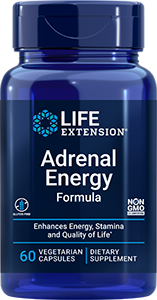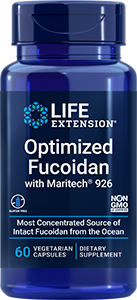- Science & Research
- Science News
- Newsletter
- 2013
- June 11

Newsletter
Newsletter
Reduced Vitamin D Associated With Decreased Cognitive Function
Reduced vitamin D associated with decreased cognitive function
Tuesday, June 11, 2013. In an article published online on May 29, 2013 in the journal Ageing Research Reviews, researchers from The Netherlands report an association between reduced serum levels or intake of vitamin D and a greater risk of cognitive decline. For their review, M. H. Emmelot-Vonk and colleagues at University Medical Center Utrecht selected 25 cross-sectional studies (which examine a specific population at one point in time) and six prospective studies (which follow a group of subjects over a given period of time) that examined the association between vitamin D status and cognition. The cross-sectional studies included a total of 48,680 men and women, and the prospective studies included 10,896 subjects who were followed for 4 to 7 years. In 18 out of the 25 cross-sectional studies, reduced vitamin D intake or serum levels were associated with decreased cognitive function as determined by test scores, or an increased risk of dementia in comparison with participants with higher levels. Among the prospective studies, reduced vitamin D serum levels or intake were associated with decreased cognitive function or a higher incidence of dementia in four of the six studies. Overall, 71% of the studies found an association between reduced vitamin D status and decreased cognitive function. No studies found a negative effect for improved vitamin D status on cognition. "This systematic review pointed out that the majority of the cross-sectional as well as prospective studies found that hypovitaminosis D is associated with a statistically significant worse outcome on one or more cognitive function tests or a higher frequency of dementia," the authors conclude. "Further studies should focus on the role of vitamin D supplementation in the prevention of cognitive decline in participants with low vitamin D levels." |
||||||||||||||||
 |
||||||||||||||||
|
||||||||||||||||
|
||||||||||||||||
 |
||||||||||||||||
|
||||||||||||||||
Integra-Lean® Irvingia is protected by U.S. Patent No. 7,537,790. Other patents pending. IGOB-131® proprietary extract is a registered trademark of Gateway Health Alliances, Inc. AdipoStat is a proprietary ingredient derived from natural plant extracts exclusively distributed by InterHealth N.I. CoffeeGenic® contains GCA™ which is a registered trademark of Applied Food Sciences, Inc. |
||||||||||||||||
The latest news on aging, nutrition, and vitamins
Lab
Testing
How Life Extension lab testing works









